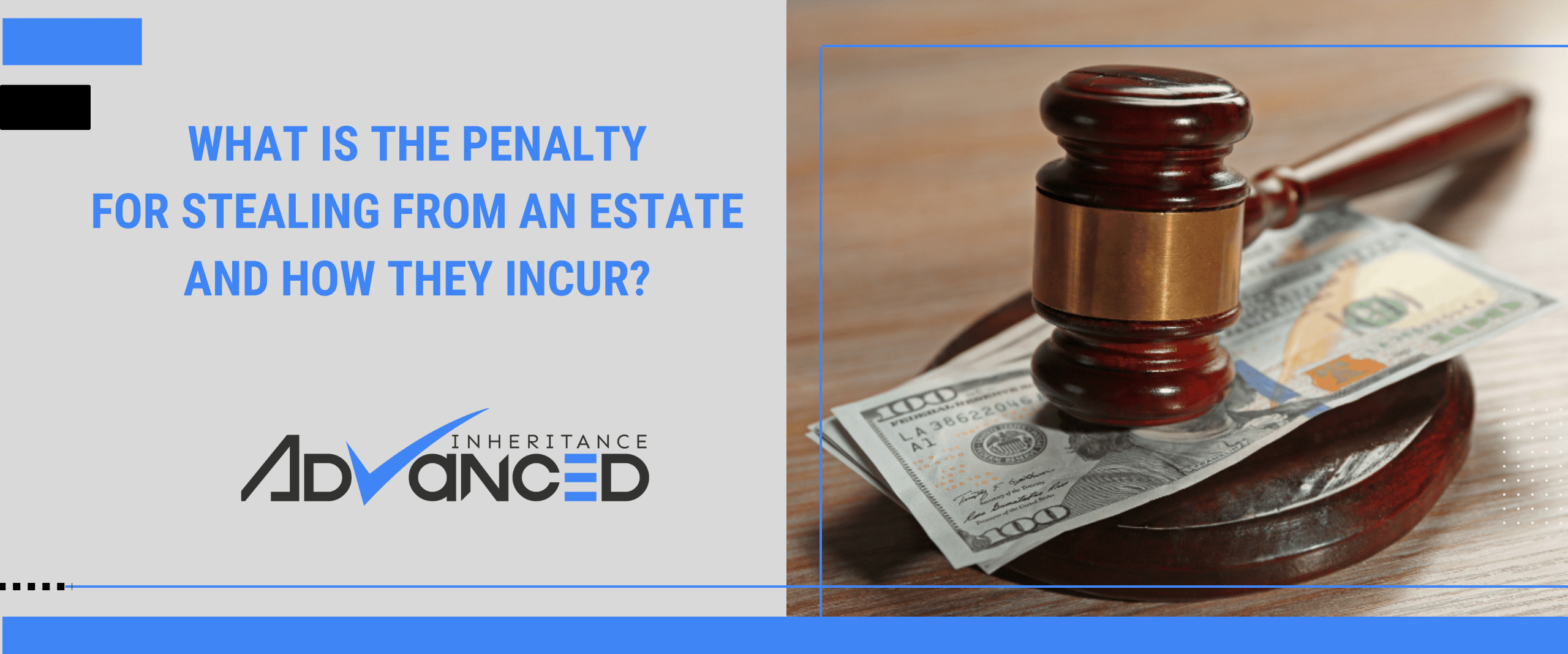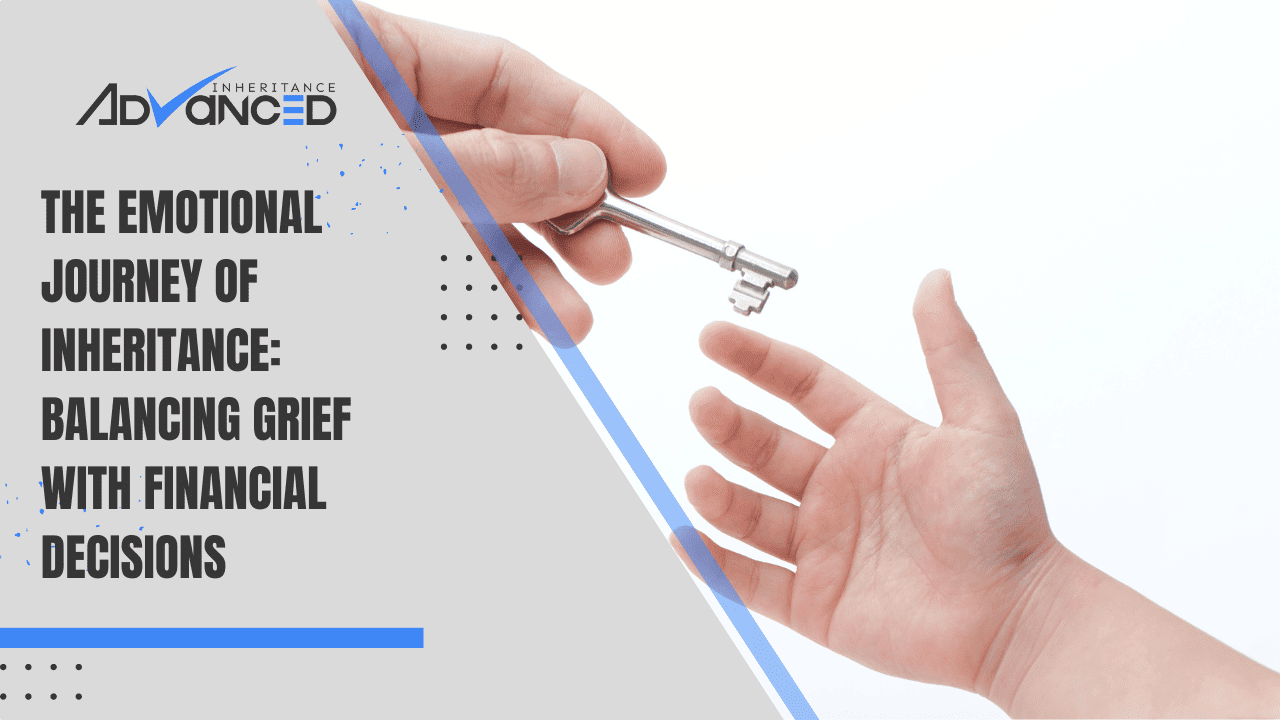The penalty for stealing from an estate depends on the value of what was stolen and who stole it. Embezzling funds or stealing property from an estate you were entrusted to oversee is illegal and will result in criminal charges.
Probate, the court process that oversees the transfer of assets, is almost always required even if there is a valid will. Probate law ensures that there are certain safeguards put in place to protect assets if an executor or beneficiary is suspected of stealing from the estate.
Jump To Section
Types Of Penalties
Someone who steals from an estate may have criminal charges brought against them, be charged a fine, or both. Stealing from an estate worth $100,000 or more is a felony of the first degree, the penalty for which is up to 30 years in prison, a $10,000 fine, or both.
Civil Penalty
Civil penalties for stealing from an estate can include the court-ordered return of money or property, possibly with interest. The court may also order the payment of fines and the winning side’s attorney’s fees.
Returning / Turning Over Property
The beneficiaries of an estate can bring a proceeding for Discovery and Turnover. If the turnover is granted by the court, the wrongfully obtained assets must be returned.
Surcharge
Surcharge charges the person who stole with having to return what they have stolen. The beneficiaries can ask the court to surcharge the individual who took money or property that they were not entitled to. If the person who stole is a beneficiary as well as the executor, the court can surcharge their share of the estate, giving some or all of it to the other beneficiaries.
Discharge Of Executor
The judge of the Surrogate’s Court can discharge and remove an executor that has stolen from an estate and replace them with one of the estate’s beneficiaries. The newly appointed executor is usually the beneficiary who brought proceedings against the previous executor for misconduct.
Attorneys’ Fees
An executor who is guilty of stealing from an estate may be ordered to pay the beneficiaries’ attorney’s fees. Because an executor’s legal fees are funded by the estate, the court may also order them to reimburse the estate for these fees.
Waiver Of Commission
An executor is entitled to a 3% commission of the value of the estate they oversee. A court can waive an executor’s commission as a penalty if they have stolen from an estate.
Criminal Penalty
Most estate theft allegations tend not to escalate to the level of criminal prosecution, but theft allegations of substantial amounts that can be proven by strong evidence can rise to that level.
The Accused’s Side Of The Story
The executor or administrator of an estate accused of theft may say that they were paying for estate expenses, taking their share as a beneficiary, funding their legal fees, or that they commingled funds by mistake. It is up to the court to decide if these claims are true unless the executor chooses to make a plea agreement with the District Attorney’s office.
Don't Wait for Probate
The Penal Law
According to penal law, an executor that steals from an estate has committed larceny. Larceny is a crime that includes wrongfully taking, obtaining, or withholding another person’s property.
Sentencing Guidelines
The sentence for committing larceny depends on how much was stolen. The most severe sentencing for larceny a person can incur is being charged with a 30-year prison sentence and or a $10,000 fee.
Restitution
The court can order the executor or anyone who has stolen from an estate to return the property and pay restitution to the beneficiaries. Any person who had access to the estate funds can be accused of stealing, including trustees, administrators, attorneys, caregivers, and others.

Florida Law On Penalties For Stealing From An Estate
In Florida, stealing is penalized according to the value and type of property stolen. Although the severity of the penalty varies, all criminal penalties for stealing estate assets may involve jail time, a monetary fine, or both.
Degrees Of Felonies In Florida
Probate is a court process that oversees the transfer of the assets of a deceased person to that person’s beneficiaries. Probate assets are assets that a person had sole ownership of, or co-owned without a plan for succession of ownership after their death. Probate also oversees the payment of creditors from the deceased’s estate before distributing funds to heirs or beneficiaries.
1st Degree
A person will be charged with a felony in the first degree for stealing property worth $100,000 or more, or cargo worth $50,000 or more. This charge also applies to stealing because of and during a state of emergency declared by the governor.
2nd Degree
A person will be charged with a felony in the second degree for stealing property worth at least $20,000 but less than $100,000, or cargo worth less than $50,000. Someone who coordinates with one or more other people to steal property worth more than $3,000 will also be charged with a felony in the second degree.
3rd Degree
A person who steals property worth at least $300 but less than $20,000 will be charged with a felony in the third degree. Stealing a will or other form of testimony, or property with 2,000 pieces or more are all felonies of the third degree. Stealing property worth at least $100 but less than $300 from a home or surrounding property is also a felony of the third degree.

Misdemeanors
The probate process is not required for all estates in Florida. Estates worth less than $75,000 without real estate or personal property valued at less than $2,500 are not subject to probate. Probate is also not required if spouses owned a property, which is known as tenancy by the entireties. Properties or assets that are co-owned by unmarried people with rights of survivorship are also not subject to probate. Property that is held in a trust is also not usually subject to probate court proceedings, as the trust assets should be distributed according to the terms of the trust.
1st Degree Misdemeanors
Stealing money or property worth at least $100, but less than $300 is a misdemeanor of the first degree. A person with one or two prior misdemeanor convictions will also be charged with a 1st-degree misdemeanor, even if their offense is a 2nd-degree misdemeanor.
2nd Degree Misdemeanors
Stealing any estate property or money not covered in the categories above is a misdemeanor of the second degree.
Don't Wait for Probate
How To Avoid Penalties?
Don’t Bite Off More Than You Can Chew
While it may be tempting to withdraw more money from an estate than you are entitled to, doing so is considered stealing, whatever the intention. Furthermore, there are certain precautions put in place to alert banks and courts of suspected fraud. Refrain from taking more funds than you are permitted to avoid penalties.
Avoid Self-Dealing
Self-dealing, the act of transferring funds from an estate account into your own account is illegal. Even if you have paid for those assets, avoid the direct transfer of funds to your accounts.
Communicate With The Beneficiaries
To avoid issues and misunderstandings, you must communicate with the beneficiaries so they are aware of how you are managing the estate. If you are withdrawing funds from the estate, alert the beneficiaries and let them know your reasons for doing so.
Do Not Co-mingle Funds
Do not combine your personal funds with estate funds. As executor, you must have separate accounts for each. An executor may be removed from an estate if they commingle funds.
Do Not Use Estate Funds For Personal Expenses
You may not use estate funds for personal expenses, such as taxes. You may only use estate funds for estate expenses, such as taxes or legal fees.
Avoid Property Distribution Without Beneficiary Consent
As executor, it is your job to distribute assets after taking inventory of the estate and paying creditors. To protect yourself from litigation, make sure to have the beneficiaries sign a release that they are satisfied with the allocation of assets and that they will never sue the executor. A signed release is a legal document and is sometimes sent with an accounting report that clearly shows the disbursement of funds.









